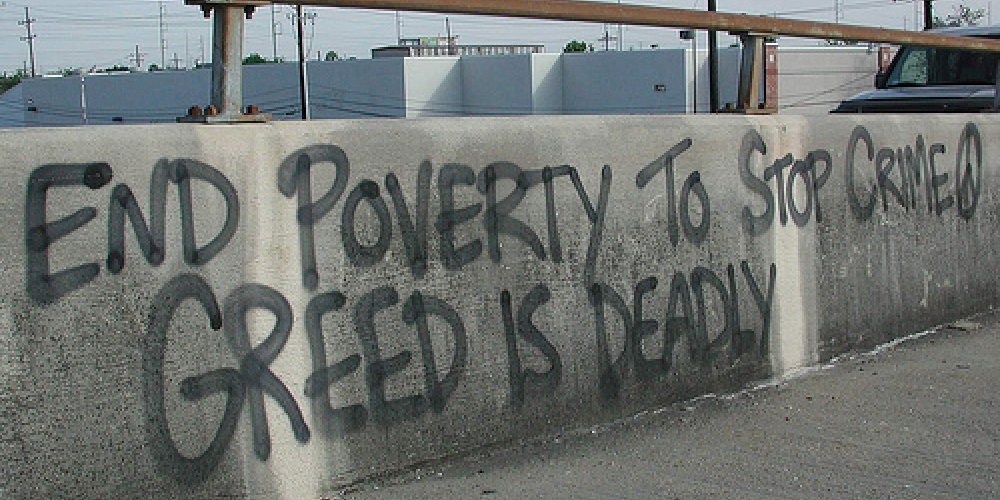
Poverty is a terrible curse, one that has been the unfortunate lot of many Jews over the years. While we are blessed to live in the wealthiest generation in all of Jewish history, having enough money is a concern of many Jews around the world. Whether this is due to the almost unbearable burden of day school tuition, to the lack of skills for gainful employment, or to a host of other factors, for many, it is the prayer for sustenance with which it is easiest to identify.
"Three things cause a person to violate his senses and go against the will (literally, knowledge) of G-d; idolaters, ruach ra (mental breakdown), and exacting poverty" (Eiruvin 41b). It is striking that the Talmud groups together idolatry and poverty. We are well aware that, for some people, money is a god. They worship it, honour it, and seek any and all ways to get close to it. While we normally associate this with the wealthy, for those who are impoverished, money concerns can take over their lives. Before one can spend even for the most basic items, one must carefully weigh resources and needs. While it is most noble to wonder how our actions are in keeping with the will of G-d, it is tragic when one has to worry about every dollar spent.
The talmudic phrase used to describe poverty is dikdukei aniut. Dikduk means exacting, where every little error is significant; hence, its use in modern Hebrew to mean grammar. Grammar may be a nuisance, but when poverty is exacting--not missing a beat, all-encompassing, and pervasive--it is that much more difficult. Those who are uncertain from where their sustenance is coming face stress, fraying nerves, and are often led to act in ways that violate the basic norms of human decency. Our rabbis were most perceptive when they declared that one who does not teach one's son a trade (a means of livelihood) is teaching him how to steal (Kiddushin 30b).
Yet we must not judge those faced with poverty. "And why does it matter?" the Talmud continues, "So that we can ask for mercy upon them". Poverty - along with mental breakdown and pressure from idolaters, leads man to act in ways that should evoke our prayers for mercy. It is not judgment but help that we must offer. We must never, for example judge those immigrants who, faced with the prospect of losing their jobs, choose to work on Shabbat.
This Talmudic statement immediately follows the Mishnah that discusses whether one who was forced out of his area of residence on Shabbat may return home on Shabbat. Dislocation is often a cause of both poverty and changing religious values, and at times can cause much mental hardship. During the long exile of the Jewish people, we have faced much poverty and persecution, and for the last 2,000 years, most have chosen assimilation over commitment. Now that we have returned to our home, let us pray for G-d's mercy that we may be blessed with wealth, allowing us to keep our senses and follow the will of G-d.



